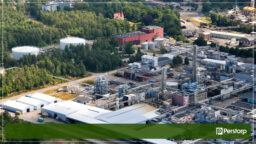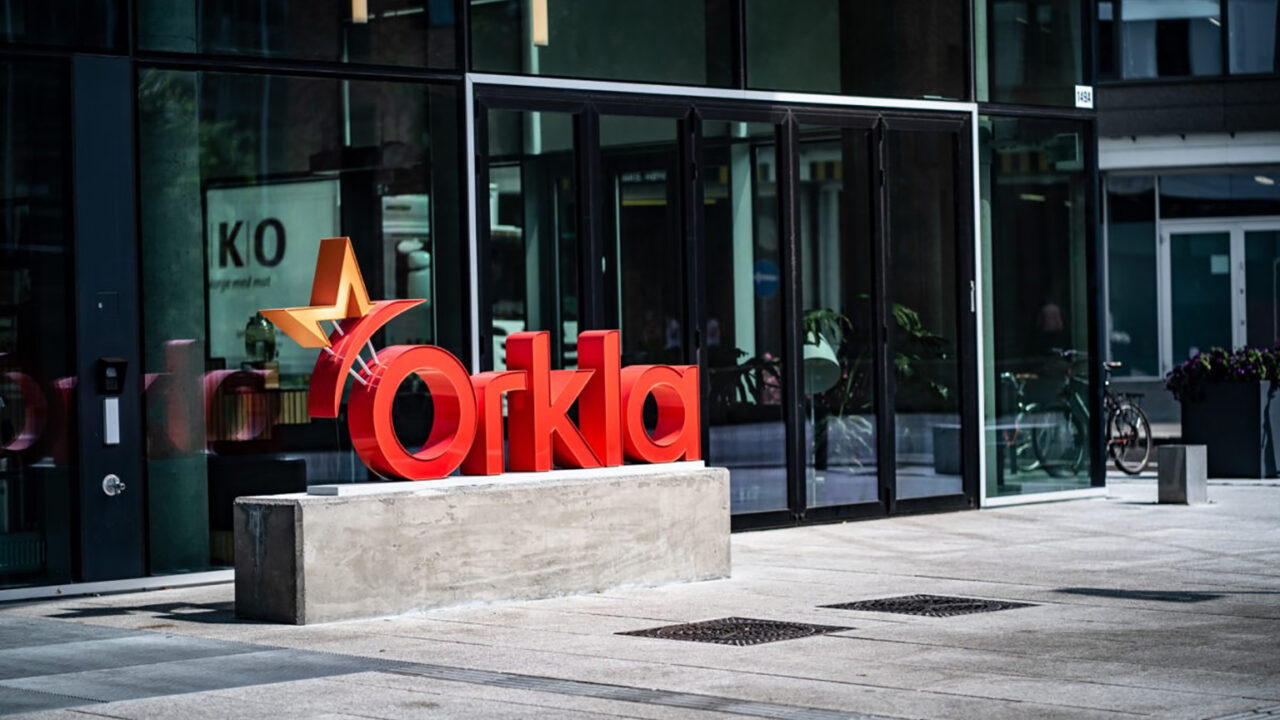Branded Consumer Goods
Orkla is the leading branded consumer products company in the Nordics, and one of Norway’s largest companies. The group has a long and colourful history dating back to 1654. Over the years, Orkla has been active in industries as diverse as metals, pulp & paper, chemicals and media. Since 2011, the company has focused on becoming a pure branded consumer goods company.
Orkla Foods is the largest business area within the group, accounting almost 50% of sales. With hundreds of brands in the portfolio, and close to 50 production facilities, it is easy to imagine the complexities Orkla Foods faces when it comes to coordinating its planning activities.
A challenging environment
Patrik Färdow, COO at Orkla Foods sets the scene, “The planning situation at our plants is highly complex. We deal with a large number of SKUs, and in combination with campaigns and seasonality, it’s a challenging environment. Historically, our planning team has been working with the planning functionalities in our ERP system, however the solution could only generate unconstrained plans which didn’t take production capacity and material availability into account. This left us with plans that needed a lot of manual adjustment just to make them possible to execute. It also meant we had massive challenges whenever something changed in terms of delivery priorities, plant capacity or materials availability. And this of course happens all the time.
“To become a truly agile branded consumer goods company, and improve our performance, we understood that we had to do this differently,” says Färdow.
“We realised that we needed a planning solution that was both flexible and powerful. When you operate in an industry with such tight margins, planning is simply too important.”
Patrik Paulsson,
Supply Chain Planning Manager
The search for a more powerful planning tool
The team began looking at advanced planning and scheduling tools. Patrik Paulsson is Supply Chain Planning Manager at Orkla Foods Norway with overall responsibility for planning. He explains, “While we run most of our business in SAP, we realised that we needed a planning solution that was both flexible and powerful enough to meet our needs. When you operate in an industry with such tight margins, planning is simply too important.”
In May 2015, Orkla initiated a pilot with Optimity at its Arna factory in Bergen, the biggest production site in Norway. The Arna plant produces sauces, soups and cake mixes under the brand name TORO.
Lofty goals
The pilot provided management and the planning team with the confidence to move forward with Optimity. The five-month implementation project that followed included a complete review and re-engineering of the existing planning processes. To manage the inevitable risks associated with any change to a core process, Orkla decided to address the stability of the supply plans first. The priority was to secure a high and consistent delivery performance level – the goal was 98% – before starting to look at reducing inventory levels.
Orkla uses SAP to support most of its business functions, including both manufacturing and distribution. Färdow admits that the integration was initially a big worry for the team, “We thought it would be complicated and expensive. But while ironing out some issues did take work, it wasn’t as difficult or costly as we initially imagined.”
The results
The Arna site went live in spring 2016 with Optimity’s Supply Chain Optimizer, Inventory Optimizer and ABC Analyser modules, and the improvements were immediate. Delivery performance quickly stabilised at a level even exceeding the target of 98%. The graph below tells the story.

Constraint-based plans give Orkla the agility it needs
Paulsson comments, “With Optimity’s optimization and modelling capabilities, we can today quickly generate an optimized and up-to-date supply plan. The plans are already validated and can be executed as they stand. This is immensely valuable to us.”
Patrik Färdow continues, “We now have realistic, constraints-based plans that are built on the actual conditions we’re dealing with. If we need to adjust anything, we can run new plans extremely quickly. We simply didn’t have this capability before. Another important part of the project was the automated classification and grouping of products. Based on each SKU’s forecast accuracy and contribution margin, we now have the ability to dynamically optimise our safety stocks to match our target service levels.”
“We now have realistic, constraints-based plans that are built on the actual conditions we’re dealing with. If we need to adjust anything, we can run new plans extremely quickly. We simply didn’t have this capability before.”
Patrik Fardow,
COO
Planning shifts gear
Paulsson is keen to stress that working with an advanced planning solution like Optimity does require you to look very hard at your planning processes. “It is a fundamentally different way of working with planning, and the processes need to be aligned accordingly. But once you recognise this and start taking advantage of the solution’s potential, planning all of a sudden shifts to become a real decision-support tool for the entire business. A great example of this is the ability to generate instant ‘what-if’ scenarios that can be used to improve an existing plan, or to test the sensitivity or impact of a specific event.”
Decision support across the business
Orkla Foods is also using Optimity’s intuitive dashboards and reporting capabilities to support Sales & Operations Planning meetings. Members of the management and those involved in S&OP now have accurate and up-to-date plans and scenarios available at their fingertips.
Paulsson also mentions the synergies that a common advanced planning solution offers. “We can already see improved communication across our planning team, and there is also an increased level of interest in planning from management, as plans have become much more accessible and dynamic.”
Detailed production scheduling remains the responsibility of the schedulers at the respective factory sites. Paulsson feels that the optimised tactical plans from Optimity that feed the plant schedules have made life a lot easier.
He offers some useful advice, “There’s a lot of knowledge and know-how at the local plants. I would encourage anyone considering a similar project to involve the local schedulers early in the process. At the end of the day, they are the customer of the production plans that we produce centrally, and they know better than anyone what they need to get the job done.”
In-depth knowledge adds value for Orkla
The success so far is not just down to the strengths of the Optimity product suite. Paulsson explains, “Optimity´s industry experience and expertise in supply chain planning has been invaluable to us. They live and breathe planning. They know how to address the issues, and trust me, we have thrown some curve balls at them, but they’ve always come up with sound recommendations and solutions.”
Patrik Färdow concludes, “Manufacturing is entering a new era. There is much talk at the moment about Industry 4.0 and the move towards digitization. The Optimity solution is an example of a modern tool that enables this shift. When you combine the technical capabilities of the tool with the knowledge that the Optimity consultants bring – you have something very powerful indeed.”
Get all the latest industry trends, updates & news from Optimity
About Orkla
Oslo Norway
18,000
NOK 37.8 Billion















